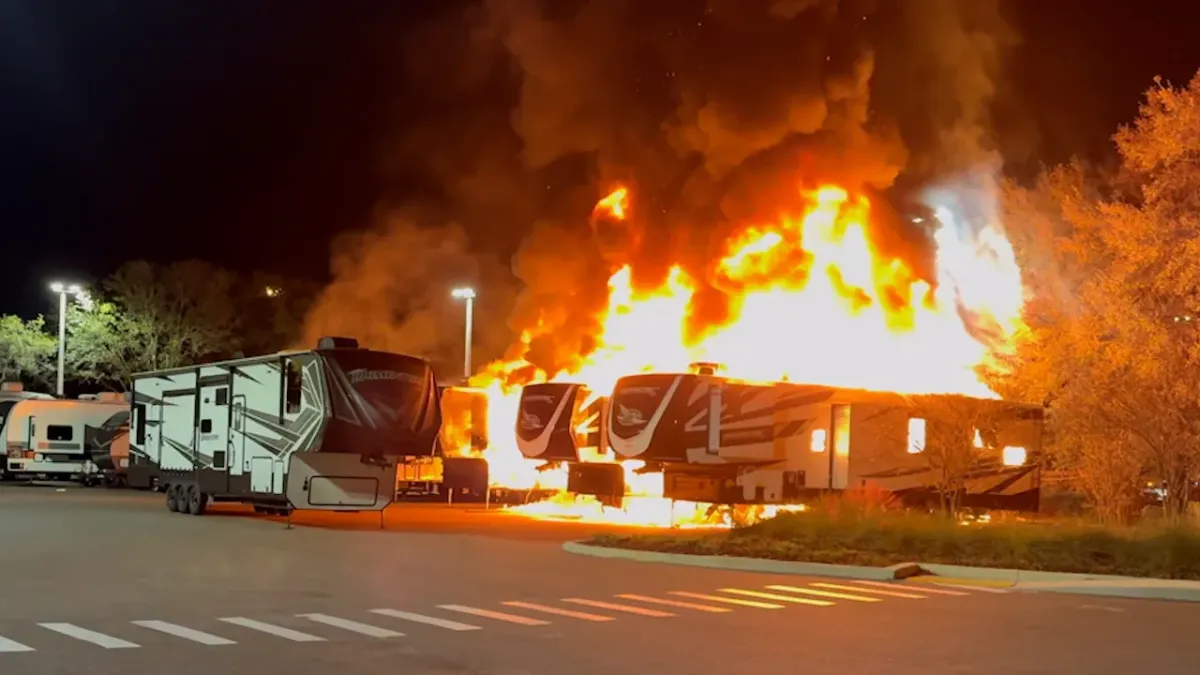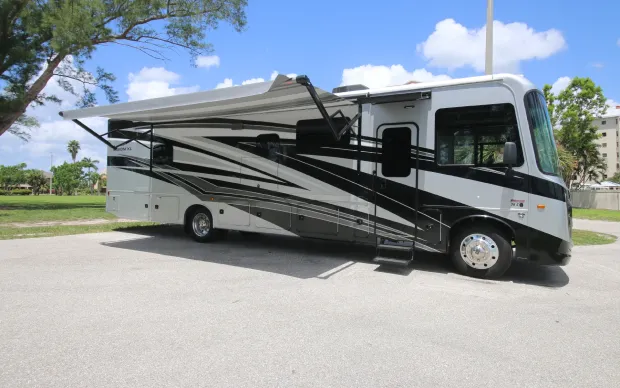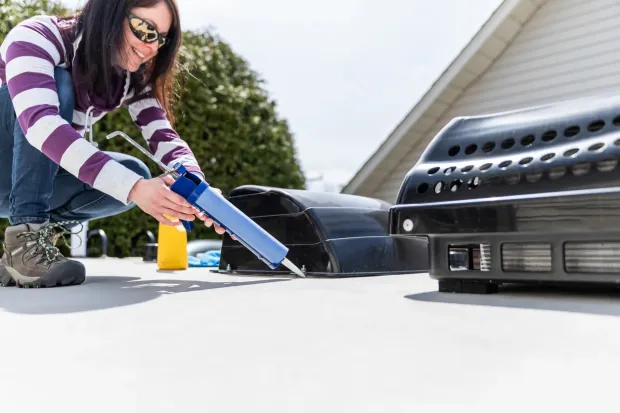A Manual on Fire Safety for Motorhomes, Campers, and RVs

Campfires Are for S’mores, Not Campervans: Essential RV Fire Safety Tips
An RV fire is every owner’s worst nightmare. Imagine returning from a hike to find your motorhome or travel trailer engulfed in flames, with all your belongings inside. Or waking up to a fire in the middle of the night while your family sleeps. Fortunately, there are preventative steps you can take now to safeguard your RV and loved ones. This article will cover essential fire prevention and safety tips to ensure your peace of mind on your next adventure.Common Causes of RV Fires
RV fires can start easily, whether from an electric heater placed too close to curtains or a gas leak igniting. However, the leading cause of RV fires is electrical shorts or faulty wiring. Fires can start in your AC unit, slide-out, generator, refrigerator, or electric heater—even when these systems are off. Motorhomes also face fire risks from the engine compartment or overtaxed wheel bearings. A 2020 report by the Fire Protection Research Foundation (FPRF) found that older RV models are more prone to fires due to outdated fire safety measures and equipment.RV and Motorhome Fire Statistics
The FPRF report highlights some alarming statistics:- Lack of smoke alarms was the primary cause in 24 RV fire deaths.
- From 2008 to 2017, there were an average of 20 RV fire fatalities per year. Most deaths occurred in rigs without working smoke detectors.
- Approximately 2,000 RV fires happen annually in the United States, excluding vehicle fires involving RVs.
- The first items to ignite in RV fires are usually electrical wiring, followed by flammable liquids.
- Mattress fires are rare (5% of incidents) but account for 33% of deaths.
- Plastics are the most common material to ignite, but fires involving fabrics or fibers result in the most deaths.
- Heat from powered equipment or electrical arcing causes the most fires and fatalities.
Stay Safe: Fire Prevention Tips
Implement these fire safety measures to protect your RV and family:- Install and Maintain Smoke Alarms: Ensure you have working smoke detectors in your RV.
- Regular Inspections: Routinely check your RV’s electrical systems and appliances.
- Safe Heater Use: Keep heaters away from flammable materials.
- Be Aware of Gas Leaks: Regularly inspect gas lines and connections.
- Fire Extinguishers: Keep accessible fire extinguishers and know how to use them.
Essential Tips to Prevent and Prepare for an RV Fire
Have an Escape Plan
Discuss an escape plan with your family in case of a fire. Decide whether to exit through a window, the main door, or a spare exit door. Ensure everyone knows the escape routes and the designated meeting spot outside. Regularly test these routes to confirm that all doors and windows can be opened quickly in an emergency.Install Smoke and Carbon Monoxide Detectors
Install smoke detectors and carbon monoxide detectors in your RV, and test them annually. Camping without these essential safety devices can be fatal.Equip Your RV with Fire Extinguishers
Keep fire extinguishers handy, not only for kitchen fires or burning carpets but also for controlling campfires that get out of hand.Inspect the Electrical System
Annually inspect your RV’s electrical system, including all power-transmitting components. The bumps and vibrations of travel can loosen connections and fray wiring, potentially causing fires. If you’re uncomfortable doing this yourself, have a qualified RV mechanic perform the inspection.Maintain Appliances
Regularly clean the air vents of your RV appliances and check for loose wires or debris. Ensure the area around your stove is free from flammable materials, given the tight quarters in an RV.Check Propane Gas Hoses
Inspect all liquefied petroleum (LP) gas hoses and connections annually, and keep your LP tank certification up to date. Turn off your LP gas system while driving or towing to prevent it from becoming a fire hazard in the event of a crash.Avoid Using Household Extension Cords
Refrain from using household extension cords. Instead, invest in RV-specific extension cords (25-foot or 50-foot) with a higher gauge wire (10-gauge) to handle the amps from the campground power source.Be Mindful of Power Strips and Plugs
Limit the use of power strips and avoid overloading plug circuits, as these are common sources of electrical fires.Invest in a Safe, Modern RV or Motorhome
Being stranded in the middle of nowhere without a way to extinguish an RV fire is a nightmare. To avoid this, take all necessary precautions and remember the Boy Scout motto: “Be prepared.” Your life could depend on it. If you’re looking for a new Class B RV, campervan, or motorhome with the latest safety technology, visit Classic Vans in person or online today. We buy, sell, and service a wide range of travel vehicles, so you’re sure to find one you’ll love. With over 30 years in business, we’ve helped thousands of customers find the perfect van or motorhome. Call us today and explore our selection of full-size vans, campervans, handicap-accessible vans, and motorhomes.Written by root on .



